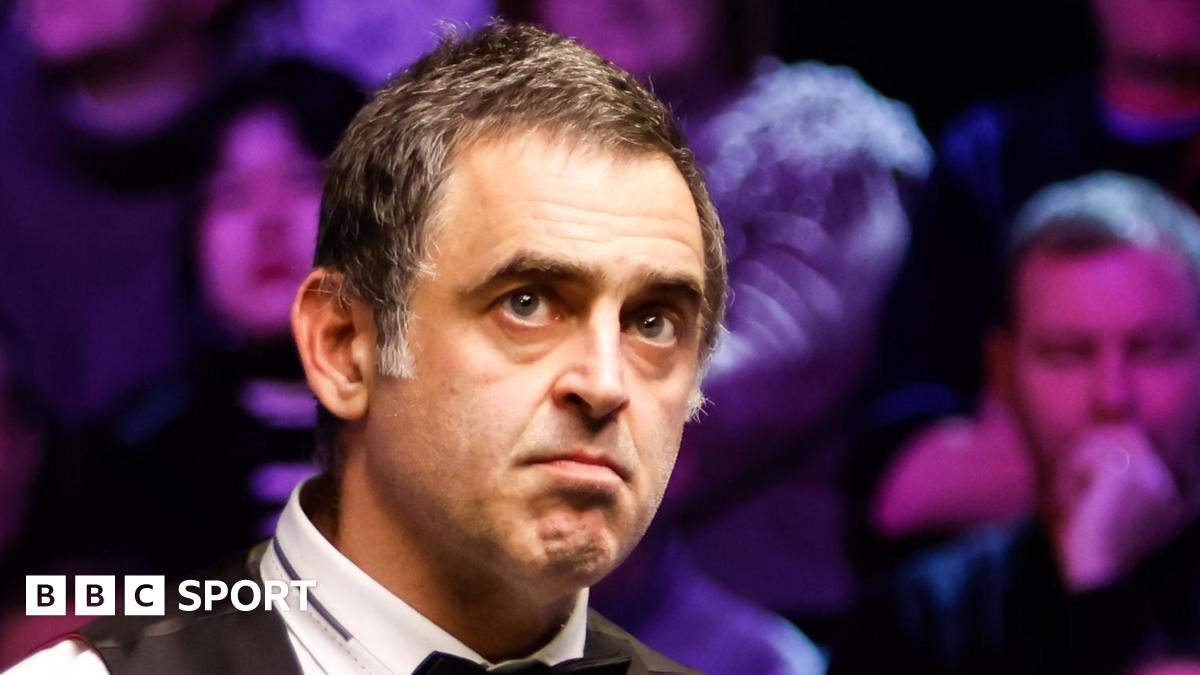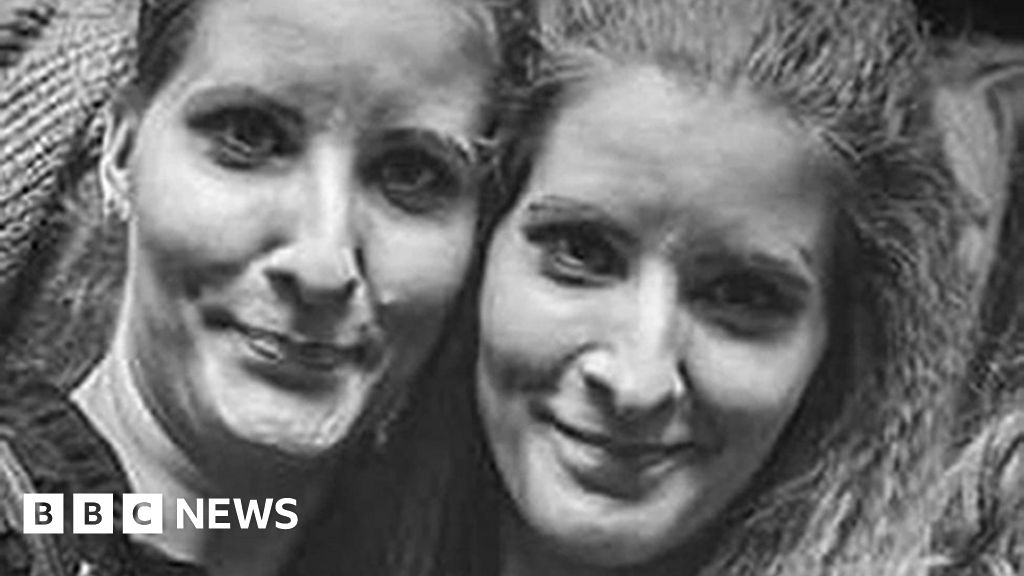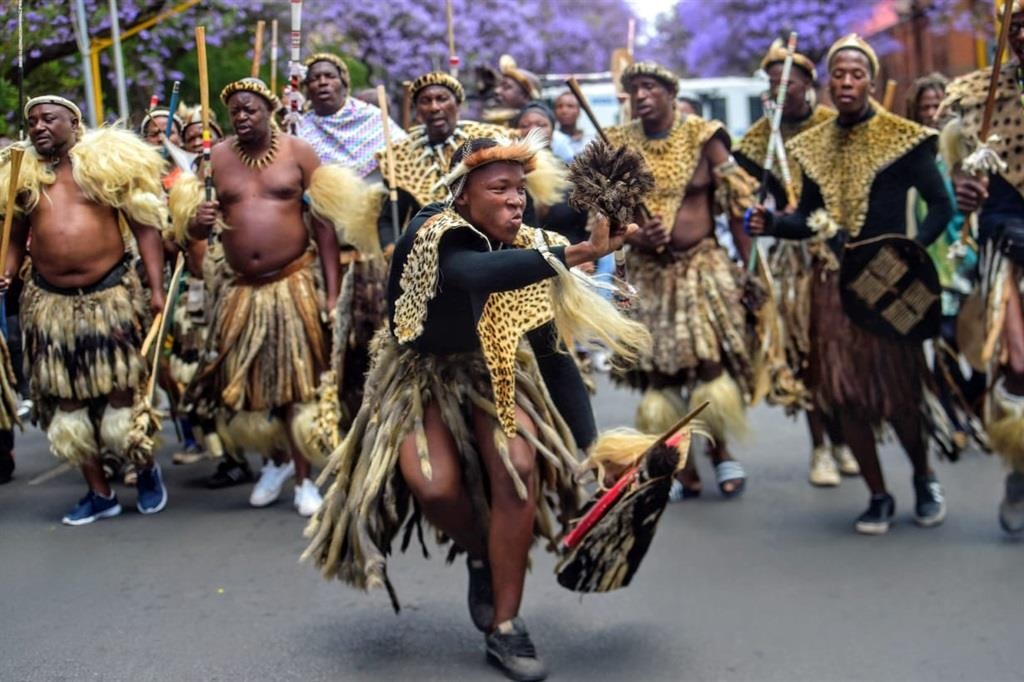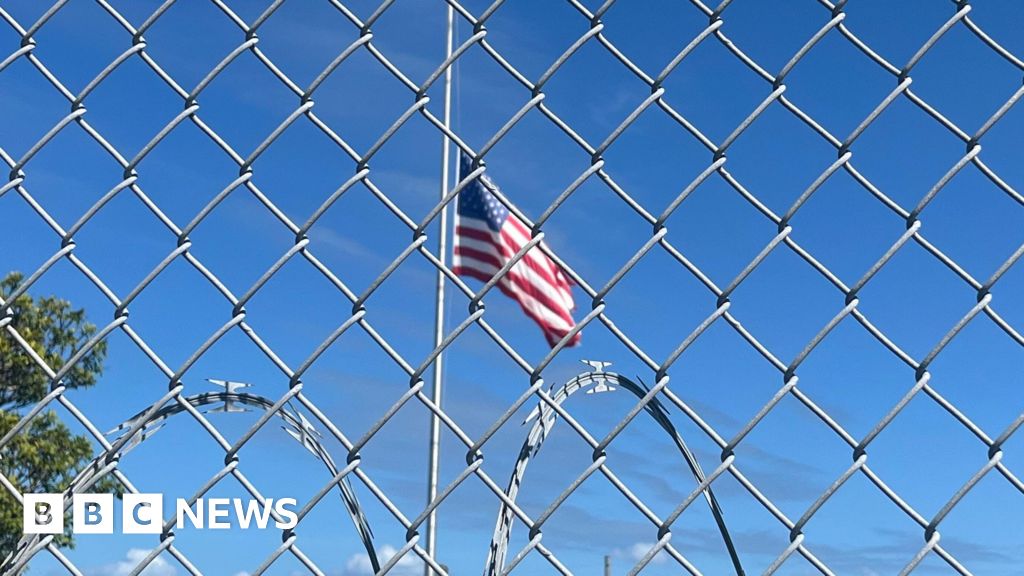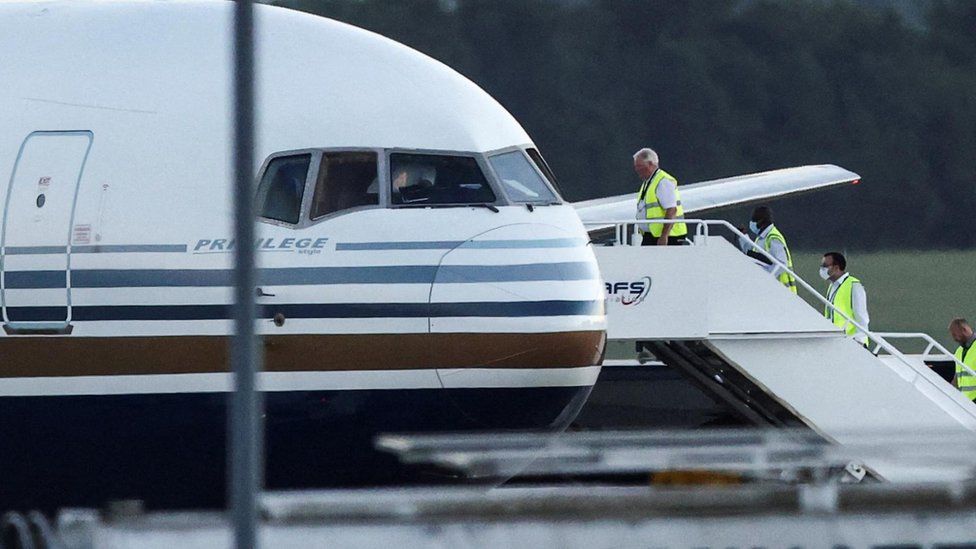 Image source, Reuters
Image source, Reuters
Legal challenges meant the first Rwanda flight was cancelled shortly before take-off in June 2022
By Sam Francis
Political reporter, BBC News
Rishi Sunak's flagship Rwanda bill is facing its first test as debate gets under way in the House of Lords.
Peers including the Archbishop of Canterbury have criticised the principles of the bill, while the Lib Dems are pushing to kill it entirely.
The move is expected to fail, but peers have indicated they will try to strip out key powers as the bill progresses.
The government's plan aims to halt legal challenges against sending asylum seekers to Rwanda.
Last week, peers inflicted a defeat on the scheme when they called for a UK-Rwanda treaty to be delayed until Kigali improves its asylum procedures.
Key votes on the legislation in the Lords are not expected until next month, but any changes made by peers are likely to be overturned by the Commons.
The government is hoping to get the flights to Rwanda running by the spring.
So far, 66 speakers have put their names to speak in the debate on Monday.
'Shoddy' bill
Archbishop of Canterbury Justin Welby, said the bill was "damaging" to the UK's reputation, to "national unity" and to asylum seekers "who are in need of protection".
This bill "obscures the truth that all people, asylum seekers included, are of great value" he said.
The archbishop said he would not vote against the bill at second reading, but told peers the UK "can do better".
Labour's former home secretary Lord David Blunkett called the bill "shoddy and less than this country deserves".
Lord Blunkett argued the Rwanda Bill fails its main purpose because it "punishes" asylum seekers, not smuggling gangs.
To stop smuggling boats, Britain needs to "get its act together" Lord Blunkett said by securing borders, processing claims and making new deals with the French.
But Conservative Lord Hannan, a former MEP, said the bill was "imperfect" but was part of a "package of measures" that would act as a deterrent, curbing the demand for illegal migration to the UK.
Former Conservative chancellor Lord Clarke said he would not support the bill and said it would endanger the UK's constitution.
Declaring Rwanda a safe country is "trying to overturn" the facts found by Supreme Court, which ruled the country was unsafe for asylum seekers, he said. The government might as well rule "all dogs are cats", he added.
Crossbench peer and leading lawyer Lord Carlile said there was "plenty of evidence that Rwanda is not a safe country" and the government was "asking us to legislate a lie".
The former independent reviewer of terrorism legislation said he would only support the bill if concerns raised by peers about Rwanda's asylum procedures were resolved.
Ahead of the debate, Downing Street insisted the Rwanda Bill was the "right thing to do".
The prime minister's official spokesman said: "This bill is a key part of how we stop violent criminal gangs targeting vulnerable people that has led to too many deaths in the English Channel.
"It is also the fair thing to do both for taxpayers and for those individuals seeking to come here through safe and legal routes who see their place jumped by those who can afford to make crossings on small boats."
Tory divisions
The prime minister was able to pass the bill through the Commons after a Conservative rebellion failed to materialise.
Mr Sunak has argued deporting some asylum seekers to Rwanda will be a deterrent to migrants seeking to get to the UK by crossing the Channel in small boats, but Labour has labelled the plan an expensive "gimmick".
Debate over the legislation has exposed on-going divisions among Conservatives - leading to two deputy chairmen, Lee Anderson and Brendan Clarke-Smith, quitting their roles in order to vote for the rebel amendments.
In the final round of voting in the Commons on 18 January, more than 60 Conservative MPs backed rebel amendments to allow the UK government to ignore parts of human rights law when sending people to Rwanda.
Dozens of Tory MPs had suggested they would be willing to abstain or even vote against the entire bill without fundamental changes.
However, in the event, just 11 MPs voted against it - including former immigration minister Robert Jenrick and former home secretary Suella Braverman.
The votes were a culmination of months of Conservative party infighting and coincided with a poll funded by an anonymous group called Conservative Britain Alliance - which projected Labour was on course for a 120-seat majority.
Tory pollster Lord Hayward has called for the Electoral Commission to look into polls pushed by groups with no credible identifiable "beneficial owner".
 (1).png)
 11 months ago
22
11 months ago
22

